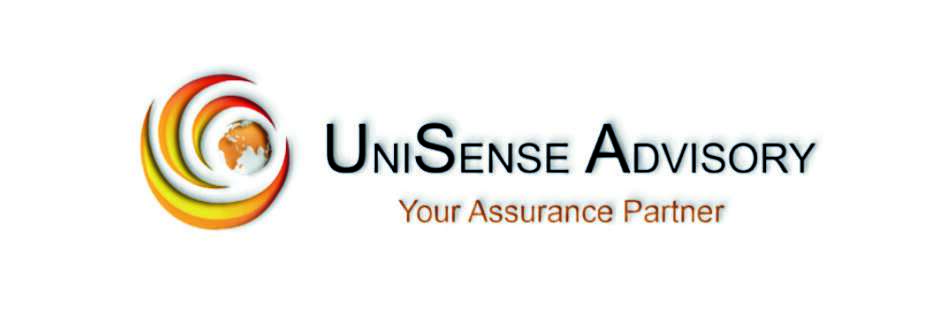
ISO 37301: Everything You Need To Know About Compliance Management
Organizations must deal with an ever-growing range of ethical, standard, and regulatory responsibilities in today’s complex environment. Businesses must successfully and efficiently navigate compliance requirements to protect stakeholders’ interests, uphold their reputations, and reduce risks. The International Organization for Standardization (ISO) released ISO 37301 compliance management systems, to help enterprises in this attempt.
Understanding ISO 37301: Compliance Management
ISO 37301, titled “Compliance management systems — Requirements with guidance for use,” provides a systematic approach for establishing, implementing, maintaining, reviewing, and continually improving a compliance management system within an organization. It offers a structured framework to help organizations proactively identify, evaluate, and address compliance risks while showcasing commitment to legal and ethical conduct.

Key Elements of ISO 37301 CMS
- Scope and Context Establishment:
ISO 37301 compliance standard focuses more on understanding the organization’s context, including its legal, regulatory, and ethical obligations, as well as its internal and external compliance requirements. This involves defining the scope of the compliance management system and establishing policies, objectives, and processes aligned with organizational goals.
- Leadership and Commitment:
Effective compliance management always starts at the top. Leaders are responsible for commitment to compliance, establishing governance structures, allocating resources, and promoting a culture of integrity throughout the organization. Leadership involvement is crucial for building accountability and driving continuous improvement.
- Risk Assessment and Mitigation:
ISO 37301 compliance always demands systematic approach to identifying, assessing, and managing compliance risks. Organizations are encouraged to conduct regular risk assessments, considering both internal and external factors, to prioritize actions and allocate resources appropriately. Strategies for risk mitigation may include implementing controls, developing policies and procedures, and providing training and awareness programs.
- Compliance Controls and Processes:
The standard focuses on the importance of implementing robust controls and processes to ensure compliance with applicable laws, regulations, standards, and contractual obligations. This involves establishing clear responsibilities, defining workflows, monitoring performance, and documenting evidence of compliance activities.
- Monitoring and Measurement:
ISO 37301 compliance standard underscores the need for ongoing monitoring and measurement of compliance performance. Organizations are encouraged to establish key performance indicators (KPIs), conduct internal audits, and periodically review the effectiveness of their compliance management system. This enables timely identification of gaps or non-conformities and facilitates corrective actions to address them.
- Continuous Improvement:
Continuous improvement is a core principle of ISO 37301 compliance. Organizations are encouraged to systematically review their compliance management system, learn from past experiences, and implement enhancements to drive better outcomes. This iterative process helps organizations adapt to changing regulatory landscapes, emerging risks, and stakeholder expectations.
Benefits of ISO 37301:
- Enhanced Compliance Effectiveness: ISO 37301 compliance standards provides a structured framework to improve the effectiveness of compliance management efforts, enabling organizations to better anticipate, prevent, and address compliance issues.
- Risk Mitigation: By systematically identifying and addressing compliance risks, organizations can reduce the likelihood of regulatory violations, legal disputes, financial penalties, and reputational damage.
- Stakeholder Confidence: Implementing ISO 37301 demonstrates a commitment to ethical conduct, legal compliance, and responsible corporate citizenship, enhancing trust and confidence among stakeholders, including customers, investors, regulators, and employees.
- Operational Efficiency: Streamlining compliance processes and implementing standardized controls can help organizations optimize resource allocation, reduce administrative burdens, and improve overall operational efficiency.
- Competitive Advantage: ISO 37301 certification can serve as a differentiator in the marketplace, signaling to customers, partners, and competitors that the organization is dedicated to maintaining high standards of compliance and ethical behavior.
Who Should Implement ISO 37301?
ISO 37301 is relevant and beneficial for a wide range of organizations across industries, regardless of their size, nature of operations, or geographical location. While the standard is applicable to various types of organizations, certain groups may find it particularly valuable to implement ISO 37301 CMS:
- Large Corporations: Multinational corporations and large organizations operating in highly regulated industries can benefit significantly from implementing ISO 37301.
- Small and Medium-sized Enterprises (SMEs): SMEs often have limited resources and expertise dedicated to compliance management. Implementing ISO 37301 can help SMEs establish structured compliance management systems can benefit them a lot.
- Public Sector Organizations: Government agencies, public institutions, and regulatory bodies responsible for enforcing compliance requirements can utilize ISO 37301 to enhance their regulatory oversight and governance practices
- Nonprofit Organizations: Nonprofit organizations, including charities, NGOs, and humanitarian agencies, operate within a complex regulatory environment while upholding ethical standards and fulfilling their missions.
- Professional Service Firms: Law firms, consulting firms, accounting firms, and other professional service providers play a critical role in advising clients on compliance matters.
- Manufacturing and Industrial Companies: ISO 37301 can help these companies integrate compliance considerations into their existing management systems, promoting operational efficiency and risk reduction.
- Financial Institutions: Implementing ISO 37301 enables these institutions to strengthen their compliance programs, mitigate regulatory risks, and enhance trust among customers and stakeholders.
- Technology Companies: ISO 37301 provides a structured approach for technology firms to manage regulatory compliance, cybersecurity risks, and data protection requirements effectively.
Conclusion:
In a time when ethical standards and regulatory scrutiny are rising, ISO 37301 CMS provides enterprises with a useful tool for managing the challenges of compliance. In an ever-changing business environment, organizations may strengthen their resilience, safeguard their brand, and promote sustainable growth by implementing a methodical approach to detecting, evaluating, and managing compliance risks. Beyond only adhering to legal requirements, ISO 37301 compliance management aims to develop an organization-wide culture of integrity and accountability that inspires confidence and trust among stakeholders.



